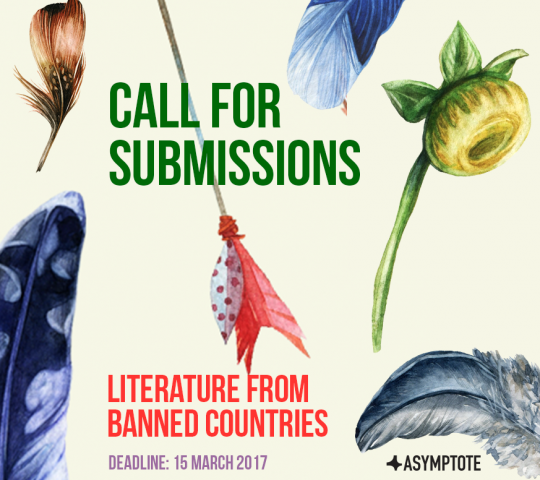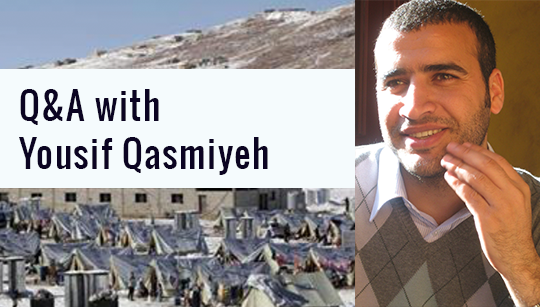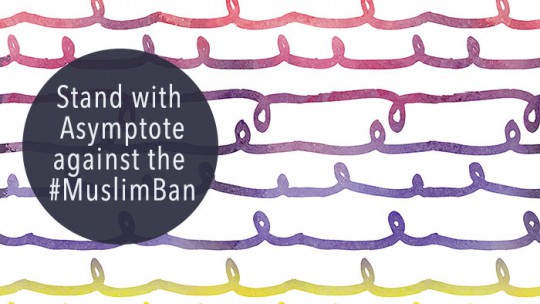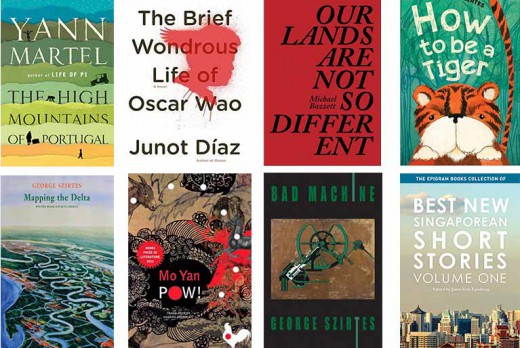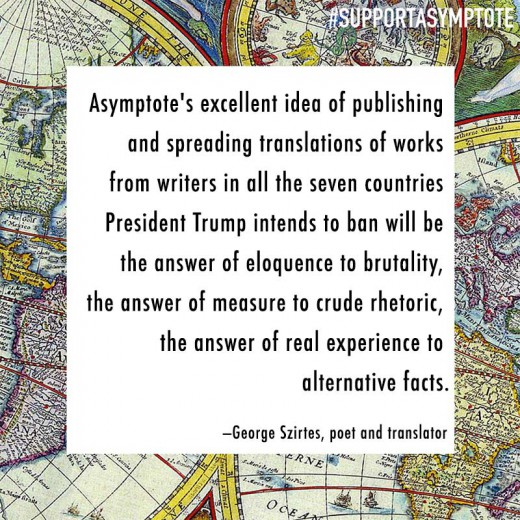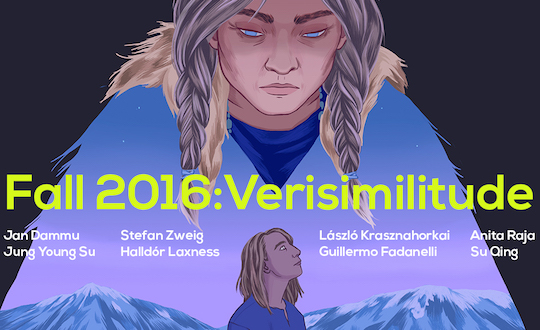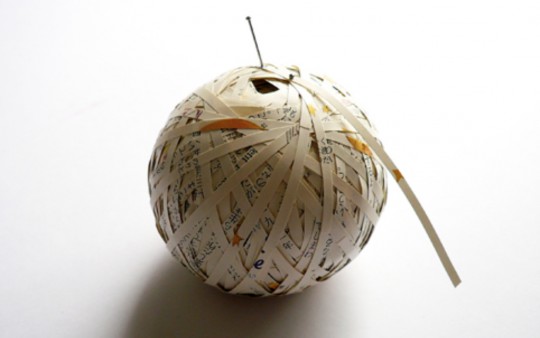Thanks to the 77 backers of our Indiegogo campaign who’ve contributed $12,736 so far, there’s already enough for us to launch a call for a Feature on Literature from Banned Countries. As new work from these affected countries will have to be specially commissioned as well as promoted, we will be directly constrained by what we manage to raise. If you’d like to see a huuge showcase to answer Trump’s new travel ban, due to be released any day now, please pitch in with a donation of whatever amount you can afford or help us spread the word about our fundraiser!
Here is the official call, taken from our submissions page:
Asymptote seeks hitherto unpublished literary fiction, literary nonfiction and poetry from the seven countries on Trump’s banned list (i.e. from authors who identify as being from Iran, Iraq, Libya, Somalia, Sudan, Syria, and Yemen) that have been created in response to Trump’s travel ban, or can be interpreted as such. If selected for publication, the work will run either in our Translation Tuesday showcase at The Guardian or in our Spring 2017 quarterly edition (or both). Submissions of original English-language work will only be considered for publication in our Spring 2017 edition. For works in English translation, the decision as to where the work will be placed rests entirely at the discretion of our editor-in-chief, who curates Translation Tuesdays at The Guardian and who will be assembling this Special Feature.
While other guidelines from our submissions page apply, contributors to this Feature only will be paid at least USD200 per article.
To make sure that the articles from this Feature are circulated widely, we will leverage on our eight social media platforms in three languages, and, depending on whether our crowdfunding campaign meets its target, paid ads in high-profile media outlets to promote them for maximum impact.
Submissions can be sent directly to editors@asymptotejournal.com with the subject header: SUBMISSION: BANNEDLIT (Country/Language/Genre). Queries, which can be directed to the same email address, should carry the subject header: QUERY: BANNEDLIT
Deadline: 15 Mar 2017

